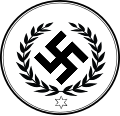Political party Period Ideology AEP — N/a Australian Equality Party 2014–2018 LGBT rights AFAL All for Australia League 1931–1932 Anti-establishment ANP — N/a Australian Nationalist Party 1958–1958 Anti-immigration ANA — N/a Australian National Alliance 1978–1981 Anti-immigration , Anti Asian AAHP Australian Affordable Housing Party 2016–2022 Affordable housing AP Australian Progressives [ 1] 2014–2022 [ 2] Progressivism APP — N/a Australian Protectionist Party 2011–2015 Anti-immigration Anti-islam Protectionism ANSP — N/a Australian National Socialist Party 1962–1968 Nazism White supremacy AVP Australian Values Party 2021–2023 Veterans' rights ASP — N/a Australian Sports Party 2013–2015 AAPP — N/a Australian Antipaedophile Party 2015–2016 Family Court reform AAP Advance Australia Party 1988-2005 Nationalism Populism AAFI — N/a Australians Against Further Immigration 1989–2008 Anti-immigration Nationalism ABFP — N/a Australian Better Families 2018–2021 Men's rights ACP — N/a Australian Commonwealth Party 1972–1972 ACP — N/a Australian Conservative Party 1989–1991 Conservatism Agrarianism
Economic liberalism
ACP — N/a Australian Cyclists Party 2013–2017 Cycling issues AIPP — N/a Australia's Indigenous Peoples Party 1993–1999 Indigenous rights APP — N/a Australian People's Party 2014–2021 Australian nationalism Economic nationalism AWP — N/a Australian Women's Party 1995–2003 Feminism ARFP — N/a Australian Recreational Fishers Party 2016–2017 Recreational fishers' interests ARP — N/a Australian Reform Party 1997–2002 Gun rights AFLP — N/a Australian Fishing and Lifestyle Party 2006–2014 Fishing rights AFNPP — N/a Australia's First Nations Political Party 2011–2015 Indigenous rights ABRG — N/a Australian Bill of Rights Group 1995-1999 Bill of Rights ADM — N/a Australian Defence Movement 1940 AMP Australian Marijuana Party 1970s–1980s Marijuana legalisation AMP — N/a Australian Motorist Party 2007-2012? Motorist rights ADV — N/a Australian Defence Veterans Party 2015–2017 Veterans' rights AWP — N/a Australian Workers Party 2017–2021 Modern Monetary Theory Social democracy ABP — N/a Aussie Battler Party 2018–2019 Right-wing populism BTFA — N/a Bullet Train for Australia 2013–2017 Pro high-speed rail in Australia CP — N/a Centre Party 1933–1935 Fascism CCC — N/a Climate Change Coalition 2007–2010 CP — N/a Commonwealth Party 1943–1944 Conservative liberalism CCP — N/a Commonwealth Centre Party 1961–1961 Liberalism CPA — N/a Conservative Party of Australia 1984–1998 Conservation CNAP — N/a Combined New Australia Party 1990–1990 CAP — N/a Confederate Action Party of Australia 1992–1993 Anti-socialism Right-wing populism
CP — N/a Country Party (South Australia) 1917–1932 CLA — N/a Curtin Labor Alliance 2001–2005 LaRouchism CA — N/a Carers Alliance 2007–2015 Social Justice Human Rights
CA Communist Alliance 2009–2012 Communism CM CountryMinded 2014–2018 Agrarianism CRNT — N/a Consumer Rights & No-Tolls 2016–2018 GRN Cowper Greens 1989–1993 [ 3] DPI — N/a David Pollard Independent 2020-2024 DS4SEQ — N/a Daylight Saving for South East Queensland 2008-2012 Daylight Saving in Queensland DSP — N/a Deadly Serious Party 1980s–1988 Joke DESP — N/a Defence and Ex-Services Party 1986–1989 Veterans' rights DOGS — N/a Defence of Government Schools 1966–1985 DPA — N/a Democratic Party of Australia 1953–1954 DSEL — N/a Democratic Socialist Electoral League 1998–2001 Socialism Social Democracy DCP — N/a Douglas Credit Party 1930s, 1960s-1970s Social credit DPDA Drew Pavlou Democratic Alliance 2021–2023 Pro-Taiwan Anti-China
DLRA — N/a Drug Law Reform Australia 2013–2017 Drug policy reform GRN Eastern Suburbs Greens 1990–1995 [ 4] EAPP — N/a Engineered Australia Plan Party 1982–1983 ENEA — N/a Environmentalists for Nuclear Energy Australia 2007–2010 Pro-nuclear power in Australia ESSVP — N/a Ex-Service, Service and Veterans Party Veterans' rights FPPU — N/a Farmers and Producers Political Union 1904–1910 FPP — N/a Freedom and Prosperity Party 2009-2015 FREE — N/a FREE Australia Party 2010–2014 FLT — N/a Fair Land Tax - Tax Party 2010-2014 FLRP — N/a Family Law Reform Party 1996-1999 FFWA — N/a Fluoride Free WA 2017-2019 Oppose mandatory Water fluoridation FP — N/a Flux Party 2016-2022 Issue-based Direct democracy FIN Federal ICAC Now 2020-2023 Federal ICAC advocacy, Anti-corruption G4C Gamers 4 Croydon 2009–2010 Video game interests Progressivism Environmentalism GA Green Alliance Senate – NSW 1990–1995 [ 5] GRN Greens in Lowe 1990–1995 [ 6] GP — N/a Grey Power 1983–1994 Pensioners' interests GAP — N/a Great Australians Party 2003–2006 HOV — N/a Hear Our Voice 2007–2010 Social justice HAP — N/a Health Australia Party 2013–2024 Anti-vaccination HRP — N/a Human Rights Party 1999-2007 Law reform HPA — N/a Hope Party Australia 1997–2006 IDP — N/a Independent Democratic Party 1953–1954 IEFF — N/a Independent EFF 1987–1999 IVFS — N/a Independent Voices for the Senate [ a] 2021–2023 [ 7] ILP — N/a Industrial Labor Party 1936–1939 Socialism Industrialisation
IMOP Informed Medical Options Party 2016–2023 Anti-vaccination LDP — N/a Liberal Democratic Party 1943–1944 Liberalism MAP — N/a Mature Australia Party 2014–2017 MCP — N/a Middle Class Party 1943–1943 LRG — N/a Liberal Reform Group 1966–1969 Anti-conscription Anti-war
LEFBP — N/a Lower Excise Fuel and Beer Party 2001–2004 Beer Party Anti GST
LAOL — N/a Love Australia or Leave 2016–2022 Anti-Islam Anti-immigration MP — N/a Mutual Party 2014–2015 LPA — N/a Libertarian Party of Australia 1977–1980s Libertarianism MPP — N/a Multicultural Progress Party 2014 NDL — N/a National Defence League 1891–1910 Conservatism NP — N/a National Party (South Australia) 1917–1923 NHP — N/a National Humanitarian Party 1983–1984 NHHP — N/a No Hoo Haa Party 2002–2011 NLP — N/a Natural Law Party 1990–1997 Pro-Transcendental Meditation NFA — N/a National Front of Australia 1977–1984 Anti-immigration NGSTP — N/a No GST Party 2001-2004 Anti GST NAN — N/a No Aircraft Noise 1995–1999 Anti-noise pollution NLTC — N/a No Land Tax Campaign 2014-2015 Anti Land tax NA — N/a National Action 1982-1991 White supremacy Fascism NSPA National Socialist Party of Australia 1964-1977 White supremacy Nazism NENSM — N/a New England New State Movement OAM — N/a One Australia Movement 1986–1992 Christian politics OAP — N/a One Australia Party 1995–1999 Conservatism Economic nationalism Right-wing populism
OLM — N/a Official Labour Movement 1953–1955 Progessivism OPA — N/a One Parliament for Australia 1943–1943 ODD Online Direct Democracy 2007–2020 Digital direct democracy ORP — N/a Outdoor Recreation Party (Stop the Greens) 1996–2017 PIP — N/a Pangallo Independents Party PPP — N/a Party! Party! Party! 1989–1989 Joke PPA — N/a Pirate Party Australia 2008–2021 Pirate politics E-democracy PPP — N/a Protestant People's Party 1946–1949 Protestant advocacy Monarchism Anti-Catholicism Australian nationalism
PCP — N/a Progressive Conservative Party 1980–1980 White nationalism Anti-immigration , Anti Asian PCIRA — N/a Pensioner and Citizen Initiated Referendum Alliance 1982–1996 Pensioners rights Monarchism
PPP — N/a People Power Party 2006–2006 Progressivism ' PPV — N/a People Power Victoria – No Smart Meters 2014–2017 Anti introduction of smart meters PUAP — N/a Pauline's United Australia Party 2007–2010 Protectionism Social conservatism RUAP — N/a Rise Up Australia Party 2013–2019 Anti-islam Right-wing populism SCP — N/a Services and Citizens' Party 1943–1944 SPA — N/a Services Party of Australia 1946–1946 SRP — N/a Smokers' Rights Party 2012–2017 Smokers' Rights SDP — N/a Social Democratic Party 1980–1983 Social democracy RFG — N/a Referendum First Group 1984–1984 RPA — N/a Republican Party of Australia 1982–2021 Republicanism RA — N/a Reclaim Australia: Reduce Immigration 1996–1999 Anti-immigration STRAH — N/a Save the RAH 2010–2010 Anti relocation of the Royal Adelaide Hospital RDSDA — N/a Restore Democracy Sack Dan Andrews Party 2022–2023 Anti-Daniel Andrews RWRP — N/a Restore the Workers' Rights Party 2007–2011 Workers rights Trade unionism SOS — N/a Save Our State 1990–2010 GRN South Sydney Greens 1990–1995 [ 8] SLP — N/a State Labor Party 1940–1944 Communism SPGN — N/a Stop Population Growth Now 2014–2019? Opposition to Overpopulation Anti-immigration
SRWTP — N/a Sun Ripened Warm Tomato Party 1989–1989 Joke SP — N/a Surprise Party 1989–1989 Joke UCP — N/a United Christian Party 1972–1983 Christian politics UTG United Tasmania Group 1972–1990 Green politics Environmentalism TST — N/a Tasmania Senate Team 1992–1996 Regionalism TFP — N/a Tasmania First Party 1996–2006 Regionalism Gun rights TOPS — N/a Taxi Operators Political Service 1997–2001 MHP The Australian Mental Health Party 2016–2020 Mental health advocacy TBRNR — N/a The Basics Rock 'n' Roll Party 2014 GA The Victorian Green Alliance 1990–1996 [ 9] WP — N/a The Women's Party 2019–2021 Representation parity Liberal feminism TNL The New Liberals 2019–2023 Social liberalism Republicanism [ 10] VSP — N/a Victorian Socialist Party 1906–1932 Socialism Entryism VIC — N/a Victorians Party 2021–2022 Centrism VEP — N/a Voluntary Euthanasia Party 2013–2021 Voluntary euthanasia VFTW — N/a Voice for the West 2014–2015 Localism WWW — N/a What Women Want 2007–2010 Women's rights WLP WikiLeaks Party 2013–2015 Pro-Julian Assange GRN Western Suburbs Greens 1990–1995 [ 11] YVA — N/a Yellow Vest Australia 2015–2020 Anti-islam Right-wing populism YANP — N/a Young Australia National Party 1909–1915 Pro-White Australia 



















